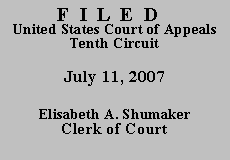

| UNITED STATES OF AMERICA, |
|
| v. | |
| MARK JOHN PYPER, |
Mark John Pyper pleaded guilty to manufacturing or attempting to manufacture fifty grams or more of methamphetamine in violation of 21 U.S.C. § 841(a), (b)(1)(A)(viii). Pyper's properly calculated advisory sentencing guideline range was 151 to 188 months. On the government's Federal Rule of Criminal Procedure 35(b) motion, however, the district court reduced Pyper's offense level by three levels, resulting in an advisory sentencing range of 108 to 135 months. The district court sentenced Pyper to 108 months' imprisonment. In so doing, the district court, after analyzing the factors set out in 18 U.S.C. § 3553(a), specifically rejected Pyper's request for a further downward adjustment to his offense level or a below-guidelines-range sentencing variance.
Pyper's counsel has filed a brief pursuant to Anders v. California, 386 U.S. 738 (1967), advising the court that Pyper's appeal is wholly frivolous. Accordingly, counsel also seeks permission to withdraw. In particular, counsel notes a review of the plea colloquy clearly demonstrates Pyper's guilty plea was knowing and voluntary. Furthermore, counsel indicates the district court utilized sentencing procedures and arrived at a sentence that complies with both the procedural and substantive requirements of United States v. Booker, 543 U.S. 220 (2005).
Under Anders, counsel may "request permission to withdraw where counsel conscientiously examines a case and determines that any appeal would be wholly frivolous." United States v. Calderon, 428 F.3d 928, 930 (10th Cir. 2005). Counsel is required to submit an "appellate brief indicating any potential appealable issues." Id. Once notified of counsel's brief, the defendant may then submit additional arguments to this court. Id. We "must then conduct a full examination of the record to determine whether defendant's claims are wholly frivolous." Id.
Pyper was given notice of the Anders brief and counsel's motion to withdraw, but did not file a brief of his own. The government likewise declined to file a brief. Instead, it filed a letter notifying the court that, as part of his plea agreement, Pyper specifically waived his right to file an appeal from any sentence within a properly calculated advisory guidelines range.(1) Our resolution of the case is, therefore, based on counsel's Anders brief, the government's letter in response, and this court's independent review of the record.
In United States v. Hahn, 359 F.3d 1315, 1325 (10th Cir. 2004) (en banc), this court held it would enforce appeal waivers as long as three conditions were met: (1) the matter on appeal falls within the scope of the waiver; (2) the defendant-appellant knowingly and voluntarily waived his appellate rights; and (3) enforcing the waiver will not result in a miscarriage of justice. Pursuant to our obligation under Anders, this court has undertaken a searching review of the record in this case. That review unequivocally demonstrates that the Hahn factors favor enforcing Pyper's waiver of appellate rights. Accordingly, this court GRANTS counsel's motion to withdraw and DISMISSES the appeal on the basis of Hahn.
ENTERED FOR THE COURT
Michael R. Murphy
Circuit Judge
*.This order and judgment is not binding precedent except under the doctrines of law of the case, res judicata, and collateral estoppel. It may be cited, however, for its persuasive value consistent with Fed. R. App. P. 32.1 and 10th Cir. R. 32.1.
1.This court notes that the interests of judicial economy would have been better served had the government filed a timely motion, pursuant to 10th Cir. R. 27.2(A)(i)(d), to enforce the appeal waiver, rather than waiting to provide such notification only after counsel filed her Anders brief and motion to withdraw.